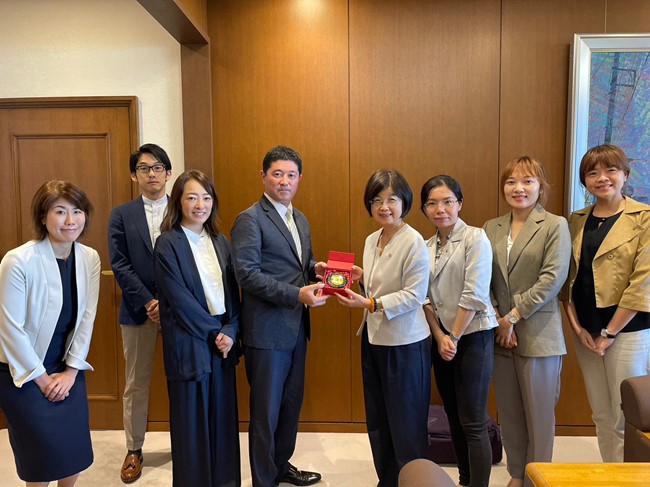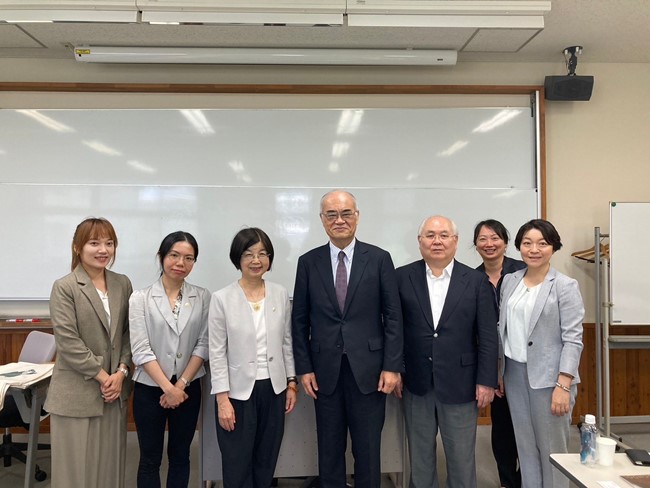President Li-Ling KER led a delegation to Japan on a study tour of the training system for Japanese legal professionals, from July 1st to 5th, 2024
- Publication Date:
- Last updated:2024-07-19
- View count:1209
In response to the resolution of the 2017 National Conference on Judicial Reform regarding the examination and training of legal professionals, the Examination Yuan previously proposed a "Draft Act Governing the Qualifications and Appointment of Legal Professionals." This bill aims to unify the examination and training of judges, prosecutors, lawyers, and legal affairs personnel. It requires the completion of one year of practical training, which includes both lawyer and judicial practice. The Ministry of Justice may commission our Academy to conduct the one-year practical training. To observe and investigate the operation of the training system for Japanese legal professionals, President Li-Ling KER of the Academy for the Judiciary, along with mentors Shu-Wen YANG and Sin-Tian CHEN, led a study visit to Tokyo, Japan, from July 1 to 5, 2024.
In Japan, the legal profession follows a unified “three-in-one” system for examination and training, which includes judges, prosecutors, and lawyers. They all take the same national examination, known as the National Bar Examination. After passing the exam, they undergo one year of training as legal apprentices. This training includes intensive coursework, field-specific practical training at district courts, public prosecutors’ offices, and law firms, as well as optional practical training in their chosen fields. Upon passing the final legal apprentice examination, they can become lawyers, judges, or prosecutors. To better understand how bar associations and higher education institutions collaborate to operate this unified training system, meetings were held with the Japan Daini Tokyo Bar Association and Waseda Law School. The discussions focused on the role of lawyer organizations in the legal training system, the impact of newly established law schools (Graduate Schools of Law) on the career planning of legal professionals, and the response to the arrangement of legal training courses.
During our visit to Japan, our Academy had the opportunity to consult with experts and scholars from both practical and academic fields. Our goal was to gain insights into Japan's legal professional training at various stages and learn from their experiences. We also shared the latest developments in reforming our country's legal professionals' examination and training system. The Japanese scholars and experts provided valuable suggestions that will serve as essential references for our Academy in designing our system and implementing support measures. This visit allowed us to connect with the international legal, academic, and practical communities and actively explore the potential for future international cooperation.



